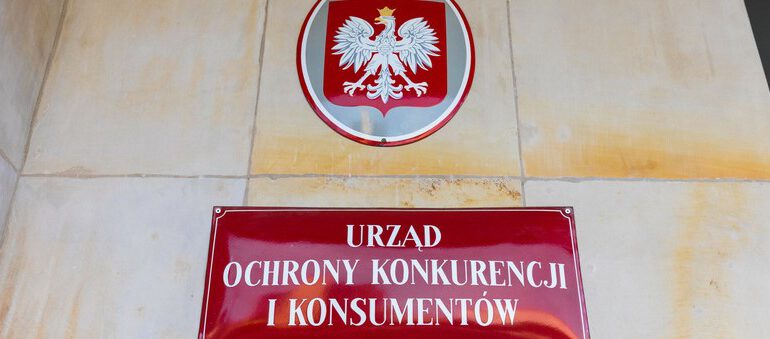Participation in antitrust proceedings before the President of UOKiK
The competences of the President of UOKiK include issuing decisions expressing or refusing to consent to a concentration by merger or acquisition of one entity by another. Although these decisions have a huge impact not only on the entities they directly concern, but also on many others (e.g. direct competitors), the provisions in force provide for only a very limited possibility of challenging these acts and participating in the proceedings before their release
CONTENTS
According to the general rule, which is stated in the article 28 of polish Code of Administrative procedure, a party to administrative proceedings is anyone whose legal interest or obligation is related to the proceedings or who requests the actions of an authority because of their legal interest or obligation. It should be noted, however, that the provisions of the antimonopoly law introduce a very significant breach from this general rule. According to Art. 94 of the Act of 16 February 2007 on competition and consumer protection (hereinafter referred to as uokik) in the proceedings in concentration cases, a party is anyone who notifies the intention of concentration. Therefore, the status of a party is granted only to active participants of a concentration, i.e. those entities that want to implement this concentration; as indicated by the Court of Competition and Consumer Protection (reference number XVII AmA 45/20), it means that it will not be granted to other entities participating in the concentration, including in particular its passive participants (e.g. entrepreneurs over whom control is taken, or whose property is acquired, entity selling shares), as well as entities that may be interested in the result of the procedure due to its impact on their actual or legal situation (e.g. competitors of concentration participants or their contractors). As a result, entities interested in a given decision may only express a non-binding opinion in the proceedings before the President of UOKiK and are not entitled to appeal to an anti-monopoly court. Although a different position was expressed in the doctrine and jurisprudence, in the proceedings which resulted in the approval of Polski Koncern Naftowy ORLEN S. A. seated in Płock taking control of Polska Press sp.z o.o.,
The President of UOKiK did not allow even non-governmental organizations to participate, arguing that Art. 31 § 1 point 2 of the Code of Civil Procedure in connection with Art. 83 of uokik does not apply to concentration proceedings before the President of UOKiK. What are the legal possibilities of appealing the decision of the antimonopoly authority by entities that are not directly party to it? Currently, such a power can be assigned to the prosecutor, non-governmental organizations (although there are different views here), consumer ombudsmen and the Ombudsman. As can be seen from the above-mentioned example of the acquisition of Polska Press, the Ombudsman challenged the decision of the President of UOKiK so effectively that the court even suspended its execution. A party interested in lodging an appeal may submit an application to one of the authorized entities to act on its behalf.


